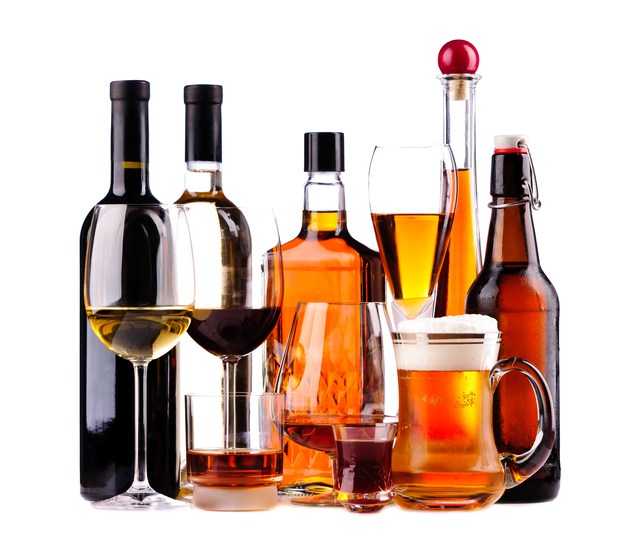Whats the saying about clear and dark liquor?
What’s the saying about clear and dark liquor? A well known phrase goes like this: Beer before liquor, never been sicker; liquor before beer, you’re in the clear. The myth goes that if you drink beer before you drink liquor, hangovers and vomiting may effect you quicker then if you drunk beer after liquor.
Also Read: What is the best clear liquor to drink?
Why dont you mix light and dark liquor?
Drinks that contain high quantities of congeners may increase hangover symptoms. Clear beverages like vodka, gin, and white wine contain less congeners than darker drinks like brandy, whisky, rum, and red wine. Mixing the congeners may increase stomach irritation.

Whats the rhyme about wine and beer?
Beer before wine and you’ll feel fine; wine before beer and you’ll feel queer goes the age-old aphorism. But scientists have now shown that it doesn’t matter how you order your drinks — if you drink too much, you’re still likely to be ill.
What is the saying liquor before wine?
The saying wine before liquor, never sicker comes down to whether mixing these drinks causes worse hangovers or not. And the answer is, the mixing of the two drinks is not the problem. Ultimately, the amount of alcohol you’re drinking is all that matters.
Also Read: Which liquors are dark?
Why does mixing clear and dark liquor?
The amount of alcohol in the blood rises more quickly after drinking liquor than after drinking beer. Clear beverages like vodka, gin, and white wine contain less congeners than darker drinks like brandy, whisky, rum, and red wine. Mixing the congeners may increase stomach irritation
What is the saying about Brown and clear liquor?
You’ve probably heard the saying, Beer before liquor, never been sicker; liquor before beer, you’re in the clear. It refers to the idea that you may be able to avoid a hangover simply by remembering to drink your alcoholic beverages in a specific order.
Is it OK to mix dark and light liquor?
You’re still getting hurt but one is easier to handle than the other. Having said that you can mix light and dark liquor so long as you don’t drink too much of it, you stay hydrated and you give yourself enough time between drinks.
What is the saying about liquor?
Beer before liquor, never been sicker; liquor before beer, you’re in the clear is a well-worn phrase backing the belief that you can avoid a hangover if you take drinks in the right order.
What Happens If You Mix Light And Dark Alcohol?
Mixing light and dark alcohol does not have any negative effects. The taste of the drink may change slightly, but it will not make you sick or anything. In fact, many cocktails and mixed drinks are made with a combination of light and dark alcohol.
Light alcohol: Light alcohols are made from fermented grains or fruits, and they have a clear color. Examples of light alcohols include vodka, gin, and rum.
Dark alcohol: Dark alcohols are made from fermented grains or fruits, and they have a darker color. Examples of dark alcohols include whiskey, brandy, and tequila.
What Happens If You Mix Dark And Light Liquor ?
Mixing dark and light liquor together can lead to a cocktail with a complex flavor profile, but it can also result in a higher alcohol content and potentially stronger effects.
Is It Bad To Mix Light And Dark Liquor?
Mixing light and dark liquor is not inherently bad, but it can make it difficult to gauge alcohol intake and may lead to stronger intoxication effects, so it should be done in moderation.
What Happens When You Mix Dark And Light Liquor?
Mixing dark and light liquor can create a cocktail with a blend of flavors, but it can also result in a potentially higher alcohol content, making it important to drink responsibly.
Why Don’t You Mix Light And Dark Liquor ?
Avoiding the mixing of light and dark liquor can help prevent unpredictable alcohol consumption and maintain better control over intoxication levels.
Why Can’t You Mix Dark And Light Alcohol?
Mixing dark and light alcohol can be problematic as it may make it harder to track your alcohol intake and could lead to overconsumption.
Can You Mix Clear And Dark Liquor?
Yes, you can mix clear and dark liquor to create cocktails, but it’s essential to do so carefully and in moderation, as it can result in varied flavors and higher alcohol content.
Why Is It Bad To Mix Dark And Light Liquor?
Mixing dark and light liquor can be problematic because it can lead to difficulties in measuring alcohol consumption accurately, potentially resulting in excessive drinking and its associated risks.
Can I Drink Dark Liquor And Then Light ?
Yes, you can drink dark liquor followed by light liquor, but it’s important to do so responsibly and be mindful of your alcohol intake.
Does Mixing Light And Dark Alcohol?
Mixing light and dark alcohol is not inherently harmful but can complicate tracking your alcohol intake and potentially lead to stronger intoxication effects, so it should be done with caution.
Why Can’t You Mix Dark And Light Liquor?
You can mix dark and light liquor, but it’s important to do so judiciously, as it may result in varying flavors and increased alcohol content, potentially affecting your intoxication level.
Is It Bad To Mix Dark And Light Alcohol?
Mixing dark and light alcohol is not necessarily bad, but it can complicate monitoring your alcohol intake and potentially lead to stronger intoxication if not done in moderation.
Read For More Information In The Below Given Link:
Related Posts On:
ncG1vNJzZmidkam2r7PEsaeiqpWZe6S7zGiuoZmkqHq1tMRmqpqxmaO0bq3BqKytZZOhsqK%2BjJqlnWWUlr%2BsecuiqK6nomQ%3D